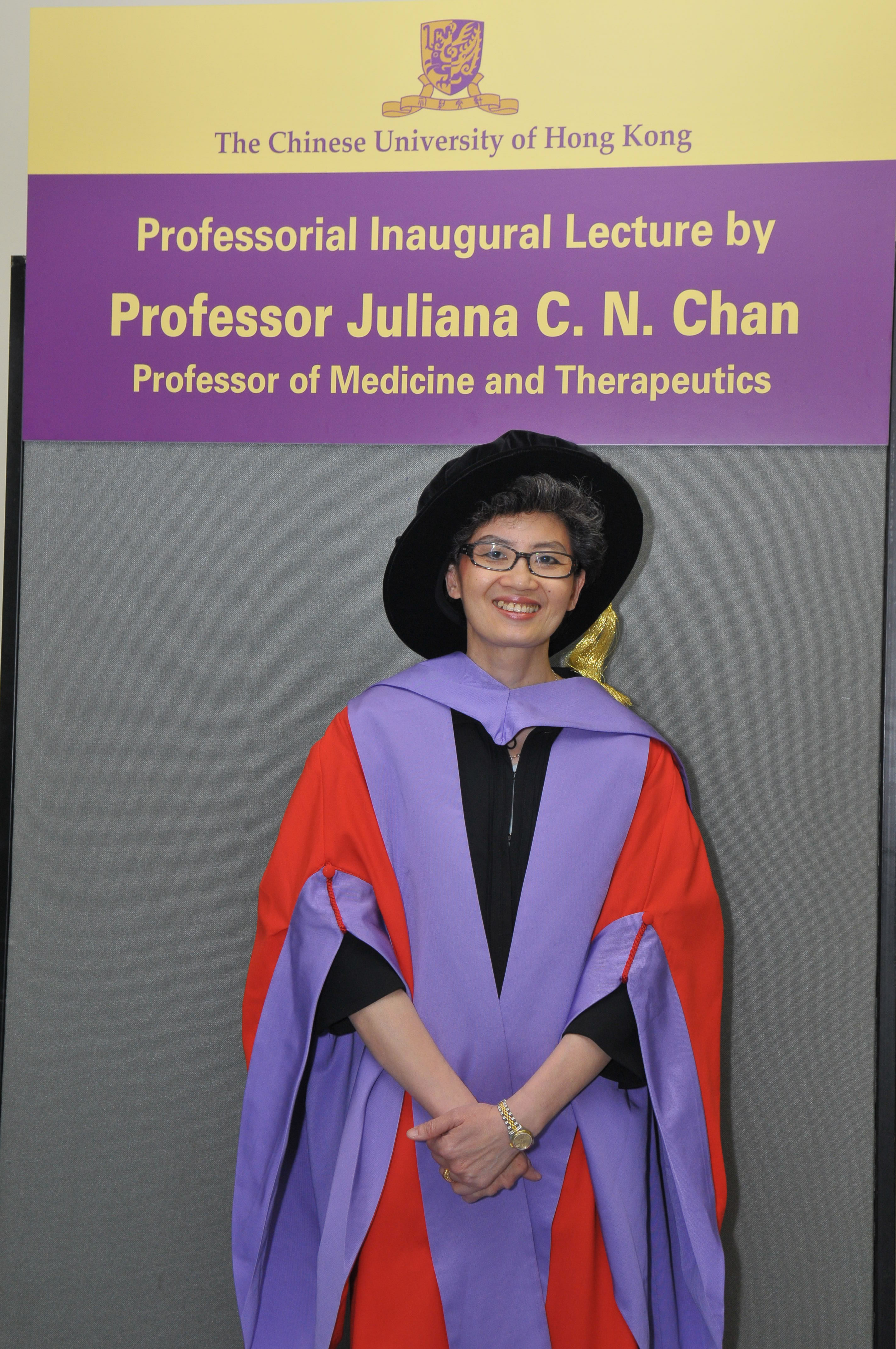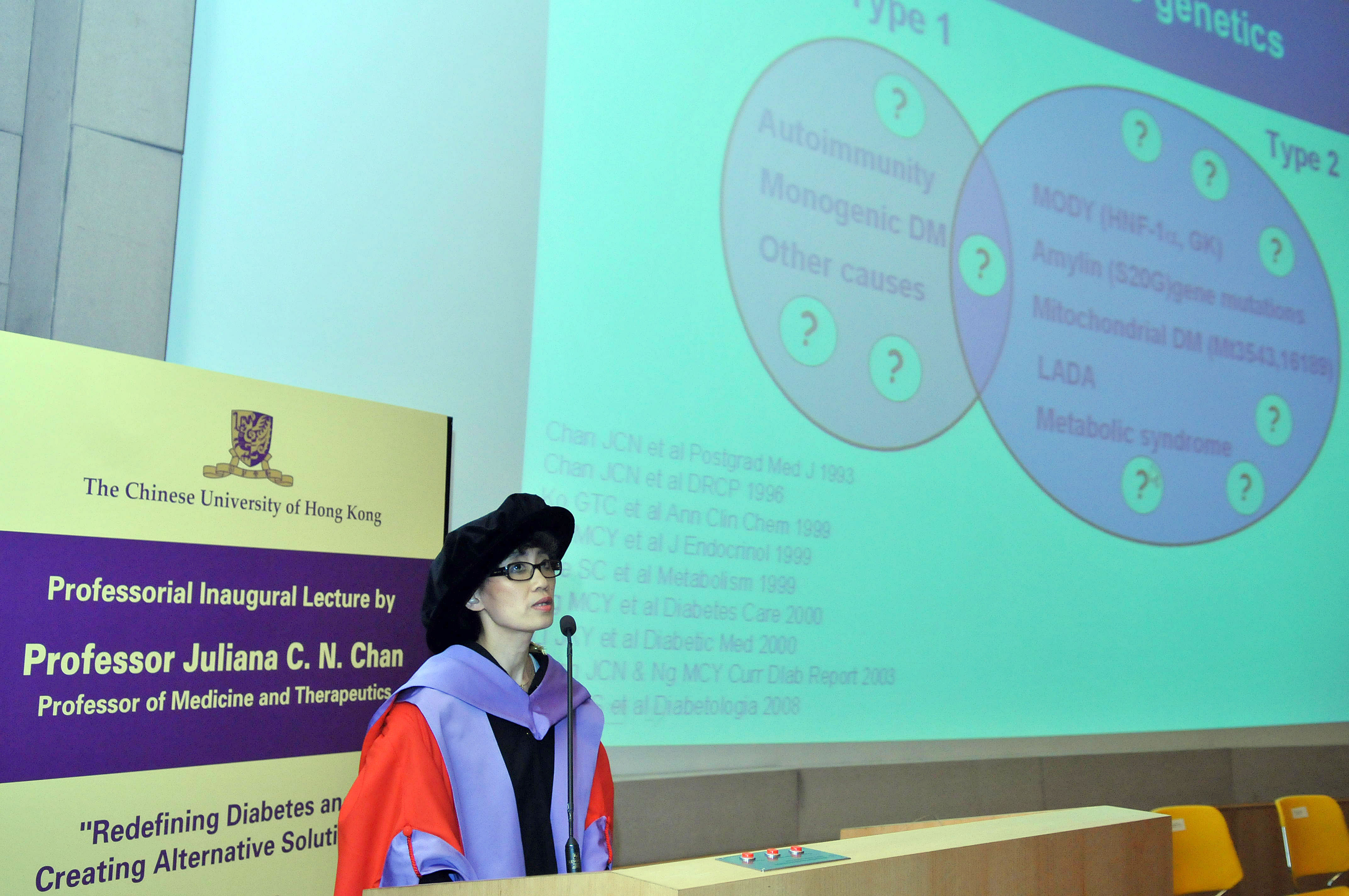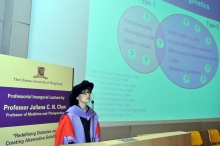CUHK
News Centre
Professorial Inaugural Lecture by Professor Juliana C.N. Chan
Professor Juliana Chan, Professor of Medicine and Therapeutics, Assistant Dean (Education) of the Faculty of Medicine and founding Director of the Hong Kong Institute of Diabetes and Obesity at The Chinese University of Hong Kong, delivered her professorial inaugural lecture on “Redefining Diabetes and Creating Alternative Solutions” at the Lecture Theatre, 2/F Clinical Sciences Building, Prince of Wales Hospital on Monday, 23 June.
Supported by world-leading experts, local and international collaborators and in the capacity of principal investigator, Professor Chan has raised over 20 million US dollars in competitive grants, contract research and donations to examine many aspects of diabetes. Her major research areas include clinical epidemiology, genetics, clinical trials and translational care programmes. In 1997, she pioneered a quality assurance and improvement programme in diabetes which has led to the award of the CUHK/PWH Diabetes Team as one of best Hospital Authority teams. In 2002, she successfully translated this model to the community by establishing the first university-affiliated diabetes centre through academic-industrial collaboration in a technology-transfer project.
Professor Chan graduated from the University of Liverpool in the United Kingdom in 1983 and returned to Hong Kong in 1984. After a period of training in psychiatry, she joined the Prince of Wales Hospital in 1986 as a medical officer and joined CUHK as a lecturer in 1989. In 1998, Professor Chan was awarded Doctor of Medicine by the University of Liverpool. She was promoted to Senior Lecturer in 1997, Reader in 2002 and Chair Professor in 2005.
At her inaugural lecture, Professor Chan described her first-hand experience in learning the atypical and complex nature of diabetes in Hong Kong Chinese, inspired by one patient, two projects and three translational programmes. The one patient was a 22 year-old lady whose medical condition has led to the discovery of a genetic variant causing insulin insufficiency and report of the first Chinese family of maturity onset diabetes of the young (MODY). This family also highlights the importance of early diagnosis in preventing devastating complications. For the two projects, the first was an epidemiological survey to define the pattern of diabetes in the local Chinese population which led to the establishment of the Hong Kong Diabetes Registry and an extensive genetics programme to unravel the interactions between genes and environment in causing diabetes. The second project was a clinical trial that led to the concept of using protocol-driven care delivered by a multidisciplinary team to prevent complications. The three translational programmes include the aforementioned technology-transfer project, a community-based diabetes risk assessment centre, and a web-based electronic portal to implement structured care in the Joint Asia Diabetes Evaluation (JADE) Program.









